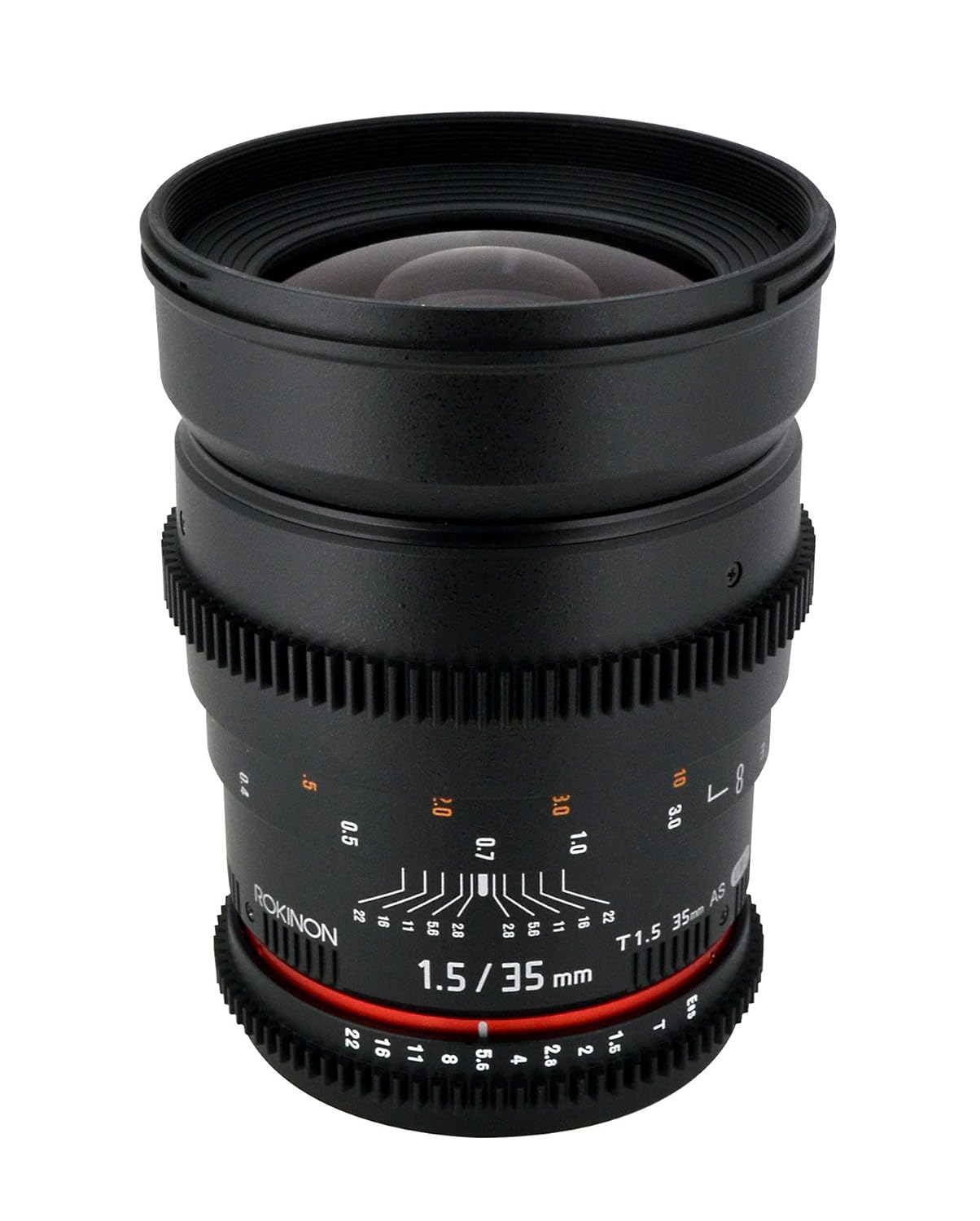The Canon 600D, also known as the Digital Rebel T3i in the US, is a Canon Camera for the entry-level EOS line-up. It sits above its predecessor, the 550D/T2i, with a host of new features, including the vari-angle LCD screen, added shooting modes, filters, HD movie capture, and a few software enhancements. The resolution sensor and processor in 600D, however, are virtually identical to its predecessor.
The 600D or T3i’s video mode features 1080p Full HD recording at 24/25/30 fps. It also features 720p HD capture at either 50 or 60 fps, with full manual control over exposure and gain. When coupled with the basic lens included in the camera kit, the 600D makes a decent camera for filming. However, you can further improve the videography with the lenses that we have compiled in this article. These additional lenses shall provide you with enough versatility to film your favorite moments almost in any conditions.
Here are the Best Lenses for the Canon 600D for Filming.

#1 Canon EF 50mm f/1.8 Lens
Rating
|
Pros |
CONS |
|---|---|
|
|
Review
If you are looking for cheaper options without sacrificing the quality, Canon 50mm F1.8 STM should be your go-to option. With a low starting price , you get to shoot sharper images with less motion blur and superb bokeh. The lens is excellent for portraits and nighttime photography, which is an amazing deal for the money you are paying. If you’re looking for other lenses at a low price check out the Best Canon Lenses Under 100.
The 50mm f/1.8 lens has STM (Stepping Motor) technology which delivers a steady, near silent, and continuous focusing, so your movies are always smooth with no noise of a focusing motor. The lens, however, does not have Image Stabilization (IS), so you will need a steady hand, or better use a rig or a tripod.

#2 Rokinon 35mm Cine Lens
Rating
|
Pros |
CONS |
|---|---|
|
|
Review
The Rokinon 35mm Cine T1.5 is a prime lens that is particularly made for DSLR video enthusiasts. So, if you are into cinematography, this is a lens you need to have in your arsenal for shooting videos. The 35mm Cine lens allows both normal distance filming as well as excellent close-ups, with an amazing out of focus blur in both modes.
The lens features de-clicked apertures, which means you get much more control over the aperture. It comes in super-handy when you want to make a smooth adjustment to your shot’s exposure while filming. The wide-angle field of view and a maximum aperture of f1.5 make it the perfect prime lens for tech channels and product reviewers. The lens has a fixed focal length with t/1.5-22 aperture range and manual focus but captures sharper images, which also makes it fine for photography. However, this specific model is meant to be a cinema lens.

#3 Canon EF-S 18-135mm f/3.5-5.6 STM Lens:
Rating
|
Pros |
CONS |
|---|---|
|
|
Review
The EF-S 18-135mm f/3.5-5.6 is a versatile lens, that is ideal for videos and images alike. It features a refined Image Stabilization (IS) system that delivers up to 4 equivalent stops of shake correction throughout the zoom range. The lens also provides a maximum magnification of 0.28x and supports the T4i’s Movie Servo AF feature to ensure smooth and continuous AF during movie shooting
Compared to the standard kit lens, this lens provides much sharper images and videos with high-speed autofocus, thanks to the inner focusing system and high-speed CPU. The EF-S 18-135mm is Dynamic IS (Movie Shooting Mode only) using a wide IS correction range that ensures steady video even when you are walking. Overall, the lens offers excellent value for money.

#4 Canon EF 24-70mm f/2.8L II Lens
Rating
|
Pros |
CONS |
|---|---|
|
|
Review
The EF 24-70mm is a USM (ultrasonic motor) Standard Zoom lens in the L series of EF optics. It is a full-frame-compatible zoom lens that is versatile enough to cater to your needs of photography and videography. The lens is sharp, focuses fast, and contains the most used range of focal lengths. Though the lens lacks Image Stabilization, the image quality or the AF speed is certainly not disappointing. As an f/2.8 lens at the max and f/22 at the minimum you have a wide range of aperture to play with.
The 24-70mm lens has a very short focus rotation, which makes it difficult for shooters to use with set marks. But the portability and the close focusing distance make this lens best for wedding photographers, photojournalists, and videographers. Just like its predecessor, the 24-70mm lens uses Canon’s USM (ultrasonic motor)-driven technology. The lens doesn’t make any noise and focuses extremely quickly. Though smaller and lighter than its predecessors, the EF 24-70 mm f/2.8L II is still a mid-size and mid-weight lens.

#5 Sigma 35mm T1.4 Prime Lens
Rating
|
Pros |
CONS |
|---|---|
|
|
Review
The Sigma T1.5 Cine 35mm is a full frame, high-speed prime lens that is specifically designed for cinematography. The lens offers full-frame sensor coverage, suitable for 8k capture. The Sigma 35mm prime lens is an all-metal body with sealed rings, making it dust-proof. The High-Speed Prime features a 180-degree focus rotation as well as glow-in-the-dark focus scales.
The ten primes in the collection, ranging from 14mm-135mm, makes Sigma 35mm the best tool for professional photographers and video makers. The special stoppers on these lenses also ensure entirely silent operation.
Insert Content Template or Symbol

